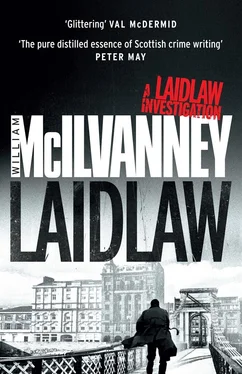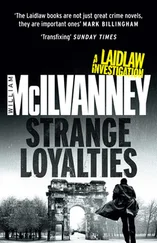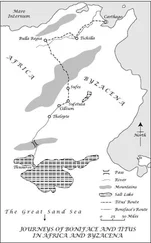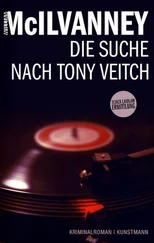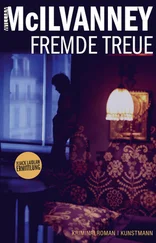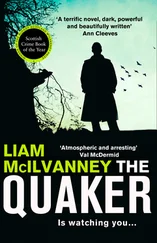William McIlvanney - Laidlaw
Здесь есть возможность читать онлайн «William McIlvanney - Laidlaw» весь текст электронной книги совершенно бесплатно (целиком полную версию без сокращений). В некоторых случаях можно слушать аудио, скачать через торрент в формате fb2 и присутствует краткое содержание. Год выпуска: 1977, ISBN: 1977, Издательство: Sceptre, Жанр: Полицейский детектив, на английском языке. Описание произведения, (предисловие) а так же отзывы посетителей доступны на портале библиотеки ЛибКат.
- Название:Laidlaw
- Автор:
- Издательство:Sceptre
- Жанр:
- Год:1977
- ISBN:0857869868
- Рейтинг книги:5 / 5. Голосов: 1
-
Избранное:Добавить в избранное
- Отзывы:
-
Ваша оценка:
- 100
- 1
- 2
- 3
- 4
- 5
Laidlaw: краткое содержание, описание и аннотация
Предлагаем к чтению аннотацию, описание, краткое содержание или предисловие (зависит от того, что написал сам автор книги «Laidlaw»). Если вы не нашли необходимую информацию о книге — напишите в комментариях, мы постараемся отыскать её.
Laidlaw — читать онлайн бесплатно полную книгу (весь текст) целиком
Ниже представлен текст книги, разбитый по страницам. Система сохранения места последней прочитанной страницы, позволяет с удобством читать онлайн бесплатно книгу «Laidlaw», без необходимости каждый раз заново искать на чём Вы остановились. Поставьте закладку, и сможете в любой момент перейти на страницу, на которой закончили чтение.
Интервал:
Закладка:
Wullie came in. Bud turned from the window. Maggie saw how Wullie didn’t look at her because he didn’t want to add to his pain by sharing hers. She thought what a decent man he had been all his life and how little was left for him. She regretted again that she had never given him children.
‘Did ye see Alec then?’ she asked.
‘Aye. He’s a nice man, Alec. Ah mean, he disny know you fae Adam, Bud. But says he’ll run ye hame an’ pick up ither people on the road. Ah said we would get the bus. He’s waitin’ for ye.’
Bud went out without saying a word. It took Maggie and Wullie more than half-an-hour to get ready. They hung about helplessly in an irrevocably empty room.
‘Well,’ she said. ‘We better get the bus.’
They walked along to George Square. While Wullie was paying the driver, she noticed that the only empty seats were at the back. But a man near the front got up and said, ‘Here, missus. You an’ yer man sit there.’ He went to the back. He must have noticed that she had been crying. It was his way of showing sympathy.
The house absorbed them into its gloom with a murmuring of hellos in the hall and a soft shutting of doors. Others were there already. Since they could find no form for what they were feeling, things that happened accidentally had become rituals. Because Bud Lawson had been in the kitchen when the first man arrived, that was where Wullie found himself, among the men.
Maggie was shown into the living-room where Sadie sat among the women. Around her their sighs and headshakes were gentle, subversive, a comfort they must give in spite of her inability to receive it. Their clichés went on tiptoe. ‘Oh my Goad, is this no’ a terrible thing.’ ‘Ye canny believe it.’ ‘Ah don’t know whit the world’s comin’ tae.’ ‘Ah’ll make a cuppa tea.’ Sadie sat motionless, leaking tears, and whenever anyone crossed her vision she offered a placative smile. It was a strange event in the ruins of her face, that smile, given without discrimination, like someone in a road accident apologising to the traffic that has hit her. Maggie saw it as partly a condemnation of her brother.
In the kitchen, interrupted only occasionally by the passing back and forth of a woman, the men were different. While the women were hunkered down with a fact, learning to live with it, the men were chafing against it. Their room was restless. One of them would always be looking out of the window or tightening one of the taps on the sink or footering with his cup. Wullie felt uncomfortable. He felt that this had nothing to do with Jennifer. It had only to do with Bud, and beside him Airchie Stanley, sitting and feeding off Bud’s silence.
Someone had produced a bottle of whisky. Wullie thought it might have seemed inappropriate except that nothing was appropriate. Only a couple of glasses had been found. The rest used cups. Slowly the whisky had played upon their grouped moods until their anger found expression. It happened at first in isolated moments.
Somebody said, ‘Folk like that shouldny be allowed tae live.’
There were noddings. The silence was a fearsome unanimity.
‘Whit harm did that wee lassie ever dae anybody?’
No harm at all, the silence said.
‘Even if they get ’im, some doactor’ll likely see tae it he jist gets jiled.’
Their righteousness was total. These were rough men. Several of them lived with violence as part of their way of life. One of them might like to talk of the time he’d met a safe-blower or had a drink with a well-known criminal. But there were crimes and crimes. And if you committed certain of them — like interfering with a child or raping a girl — they emasculated you in their minds. They made you a thing.
The kitchen became a place sterile of pity. Gradually they talked themselves out of being men. They were all vigilantes.
‘Ah only ask fur wan thing,’ Bud Lawson said. It was the first time he had spoken for over an hour. His eyes had no tears near them. They were clear and blank. ‘Jist let me hiv ’im fur five minutes.’ The cup he turned in his hands looked like a thimble. ‘Ah jist want tae hiv ’im in ma haunds. That’s all Ah want. An’ Ah’ll never ask fur anythin’ again.’
All of them deeply wanted to grant his wish. Airchie Stanley thought to himself there might be a way.
In the living-room the women still sat protectively round Sadie. For her there was nothing to do.
10
Harkness was glad of the interruption to his Sunday. It had been worrying him. Because he was on call this weekend, Mary had suggested they spend the day at her house, where he could be reached. She hadn’t mentioned it would be like paying a visit to a Christmas card.
Lunch had been trying to converse with Christmas crackers. Her parents talked in mottoes. ‘Too many people worship money nowadays.’ ‘What you never had, you never miss.’ And Harkness’s favourite: ‘God helps those who help themselves.’ It was a while since he had heard that one and when Mary’s mother said it, he felt a brief shock of pleasure, as if he’d pulled a sturgeon out of the Clyde.
Perhaps because they had a guest, they seemed determined to range far and wide among the problems of the world, obliterating each with a scattergun of prejudice. Vandalism was ‘spoiled children’. Africans had been ‘given too much power for their own good’. The unions were killing our society. Throughout the meal they passed clichés back and forth like condiments. Harkness gagged himself with food.
After lunch, Mary’s mother was in the kitchen, cleaning up and putting clothes to steep in water. Because it was Sunday, she couldn’t wash them but steeping was all right. She had apparently read the small print from Mount Sinai. Mary’s father was reading the papers. Harkness was being shown the house.
It was a nice place but it bothered him the way houses that have been made self-consciously attractive always did. The whole experience, the talk that had lost all awareness of its own arbitrariness, the carefully arrived at prettiness of the rooms, was like being trapped inside somebody else’s hallucination. And Mary’s coy retreats from his groping hands denied him something real to hold on to. He wasn’t far from jumping out of a window when the phone rang.
Mary’s mother took it at once. Harkness wondered if that meant she had been lurking downstairs in the hall, waiting for Mary to call for help. It was his father phoning from Fenwick.
Nothing was more likely to bring Harkness back to reality than that rough voice talking guardedly into the mouthpiece. His father was usually a very open man but on the phone he came over like MI5. He didn’t trust phones and it was only under protest that he’d allowed Harkness to have one installed. When you added to that his disapproval of Harkness’s being in the police, you could understand the reluctance with which he gave the message: Harkness was wanted at the office.
Suppressing a cheer, Harkness expressed thanks and regret to Mary’s parents. He said he would try to look in afterwards. At least Mary’s mother didn’t come to the door with them.
His car was conveniently parked on the Kilmarnock Road, facing into Glasgow. He wondered what was happening at the office. He hoped it was something important. This was his first weekend on the Crime Squad and he hadn’t wanted it to pass without his being called out. His year as a D.C. under Milligan in the Central Division had been interesting but Harkness wanted more. He wasn’t sure exactly what the more he wanted was, but he had applied for the job on the Crime Squad to see if it was there.
His father hadn’t been pleased because it meant his son was all the more set on staying a policeman. His father had left school during the Thirties. He hadn’t found a permanent job till after the war. He remembered the way the police had treated strikers and hunger-marchers in the West of Scotland. He hated them simply and sincerely, and he couldn’t forgive his son for becoming one of them. With just the two of them in the house, they argued incessantly.
Читать дальшеИнтервал:
Закладка:
Похожие книги на «Laidlaw»
Представляем Вашему вниманию похожие книги на «Laidlaw» списком для выбора. Мы отобрали схожую по названию и смыслу литературу в надежде предоставить читателям больше вариантов отыскать новые, интересные, ещё непрочитанные произведения.
Обсуждение, отзывы о книге «Laidlaw» и просто собственные мнения читателей. Оставьте ваши комментарии, напишите, что Вы думаете о произведении, его смысле или главных героях. Укажите что конкретно понравилось, а что нет, и почему Вы так считаете.
